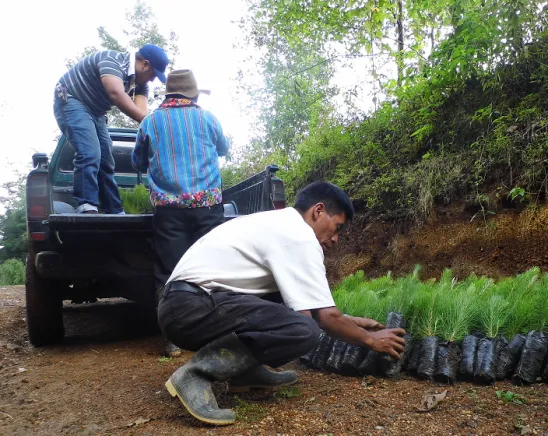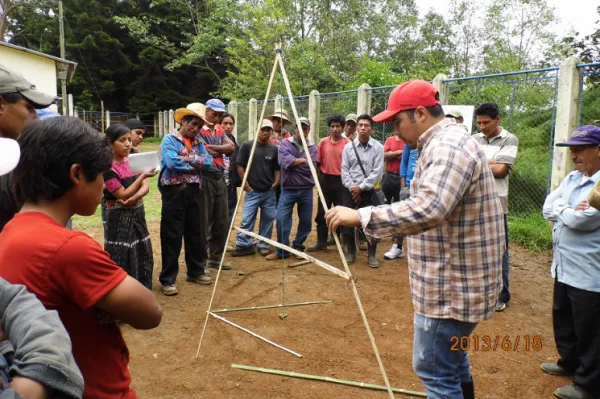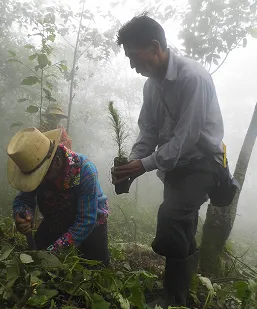Reforesting can help us adapt to climate change and reduce disaster risk

To reduce community vulnerability and strengthen community resilience, the Bio-rights Project of CARE and Wetlands International, with support of the Humanitarian Innovation Fund has promoted the implementation of activities for local development and conservation.
Through the innovative funding scheme, loans are provided to invest in DRR measures, which can be paid back by investing in ecosystem management and DRR activities. For instance, Pakim community in Nahualá municipality has financed the construction of a communal hall, which will be used as a shelter if a disaster occurs. In return, the community is taking part in different activities to reduce disaster risks, by conserving and managing the ecosystem.

Through the Local Coordinator for Disaster Reduction, COLRED, requests were made to the Association Friends of Ixtacapa river, to receive 2000 cypress and pine tree seedlings from the nursery which is sponsored by the Guatemalan Centre for Sugar Can Research and Training, ENGICAÑA, to reforest two hectares in the community.

Before the reforestation activity, the officer of CARE, Manuel Perechú, with support from intern Irvin Alva from the North-western University Centre of San Carlos de Guatemala, developed a data sheet. They trained the neighbours in the community about how to adequately reforest, focussing on the importance of the staggered system, in line with the slope contour lines. We’re encouraging communities to use a level “A” instrument, shaped as an “A”, made of bamboo and agave, used to draw the contour lines. This ensures proper growth of plants and avoids erosion.

Commencing Tuesday the 18th of June 2013, 89 families in the community organized themselves in two working groups and started planting the 2000 tree seedlings, which they have committed to manage and protect to try and ensure 85% survival of trees planted.
With the time invested, and their contractual commitment, the community have paid approximately 12% of the value of the credit for the construction of their communal hall. In addition, they are contributing to the stabilisation of the hill slopes to avoid landslides..
Stay updated
Sign up for our newsletter to receive regular updates on resources, news, and insights like this. Don’t miss out on important information that can help you stay informed and engaged.
Related articles


.png)
Explore Elrha
Learn more about our mission, the organisations we support, and the resources we provide to drive research and innovation in humanitarian response.